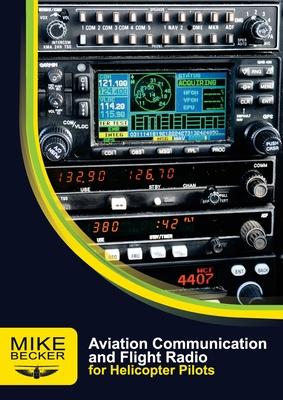In aviation, where aircraft are moving about in the air at high speeds, being able to communicate effectively with other aircraft, and with people on the ground is vitally important. This book focuses on the knowledge required to communicate using a radio in an aviation environment.
At the foundation of aviation communication, is the conventions for communicating including standard words and phrases, alphabet, numbers, and time. But most importantly, effective communication over the radio relies on how to make a radio call: what to say, how to say it, and when to make a radio call. This book provides a detailed breakdown of radio procedures accompanied by example radio calls. This includes standard radio procedures, distress and emergency calls and what to do when the radio fails.
Essential knowledge about operating a radio in an aviation environment are also explained, including understanding airspace and interpreting maps and charts. This is supported by information about how radio communication works along with descriptions of radio components and equipment.
This book is written in plain English with easy-to-understand explanations supported with many examples, illustrations and photos.
While this book follows Australian rules and regulations and provides example radio calls based on operations located in South East Queensland, anyone learning flight radio operations will find this book a valuable resource. It provides a practical easy-to-read guide to aviation communication standards and flight radio operations.
